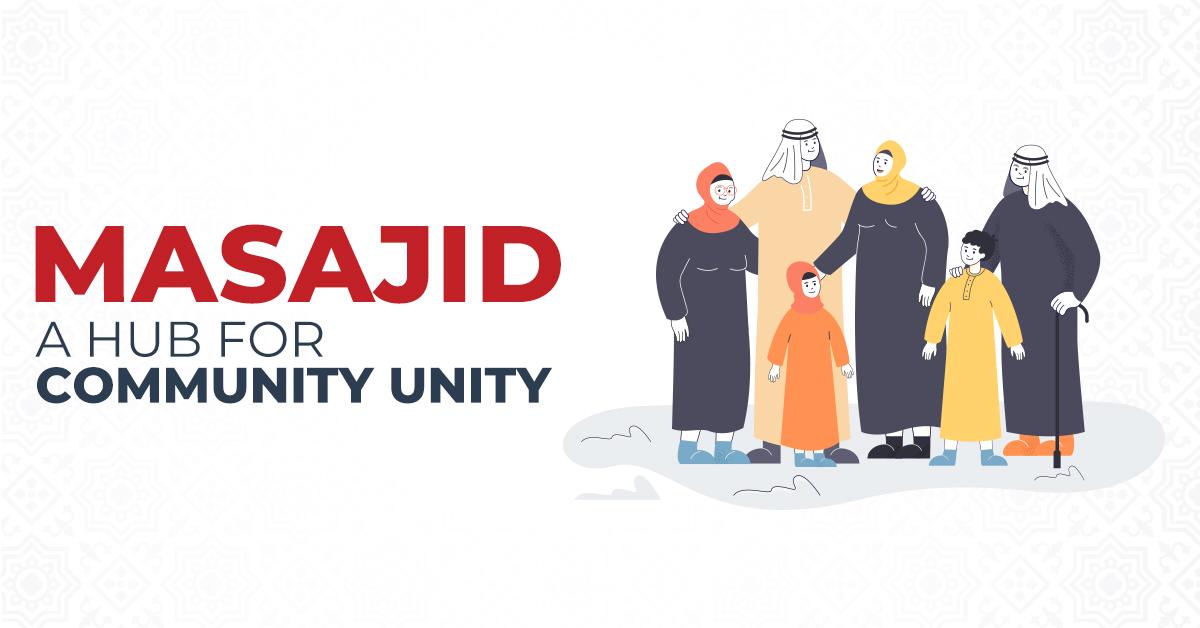Masjid as a Hub: Examining the Role of Masjid in Nurturing Community Unity During Ramadan

Muslims all over the world take the holy month of Ramadan as a time for spiritual transformation, reflective practice, and profound community togetherness. Masjid is the centre of all this activity, a place for prayer, recitation of the Quran, iftars – the meals that break the fast at sunset – and the nightly Taraweeh prayers. In this article, we will explore the role that the Masajid plays in uniting communities during Ramadan.
Masajid itself a sacred place for Increasing community Unity
Masjid is a sacred space where Muslim come to pray and gain spiritual fitness and connect with fellow & brothers. In the holy month of Ramadan, the Masajid turns into centre of activities where the community member gathers around together and community unity increases.
Combined Iftar gatherings in Masajid
Masajid often host iftar meals where it can be ensured that members of the community eat together, providing an opportunity for multicultural individuals to interact with each other, find commonalities, and foster a sense of empathy and belonging.
Praying Taraweeh Together in Masajid
The collective prayer of Taraweeh during Ramadan nights, done in congregation at Masajid all over the world, brings Muslims together in prayer. Praying side by side creates an atmosphere of brotherhood, humility and equality among the worshippers, removing any sense of class and caste.
Educating Islam through Masajid
Apart from fostering social cohesion, Masajid also serve as educational centres during Ramadan, promoting spiritual growth and religious knowledge among community members.
Quran Recitation and Tafsir Sessions
Masajid across the world will host Quran recitation sessions along with tafsir or Quranic interpretation courses during the month of Ramadan. These host being an ancient craft of occupied topography. Emphasis put on learning and understanding the holy book and thus fostering a stronger bond and faith for the believers.
Educational Workshops and Lectures
The act of learning fosters a sense of community, which is a big part of Islam. Imams and religious scholars conduct workshops and lectures in Masajid on different aspects of Islam, cultivating intellectual discussion, critical thinking and individual development, all of which helps make Ramadan a more meaningful spiritual experience for the participants.
Masajid initiatives for community support
Definite ideas that occur in mosques apart from religious teachings and educating are influencing, community support and unity.
Donation Collection as Zakat, Fitra and Sadqah
Masajid always gather funds as well as zakat during the Ramadan period to cater for the needs of the less fortunate people in their societies. Donation and sharing of resources enhance compassion, unity, and social responsibility among Muslims.
Volunteer Programs and Social Services
Some Masajid offer volunteer programs as well as social services to vulnerable families or individuals during Ramadan. Helping others through acts of service, kindness, and empathy strengthens community bonds and nurtures a culture where we have each other’s backs.
Conclusion:
Masjid plays an important role in fostering unity within the community during Ramadan. It provides a space for interactions, educational activities and support services. Through worship communal meals, knowledge sharing and charitable deeds Muslims strengthen their connections, promote a sense of belonging, and exemplify the values of unity and compassion that characterize Ramadan. Not only does the Masjid serve as a place of worship but also as a hub for unity, learning and community service. Let’s appreciate and back our Masajid as centres for promoting community solidarity throughout the month of Ramadan.

